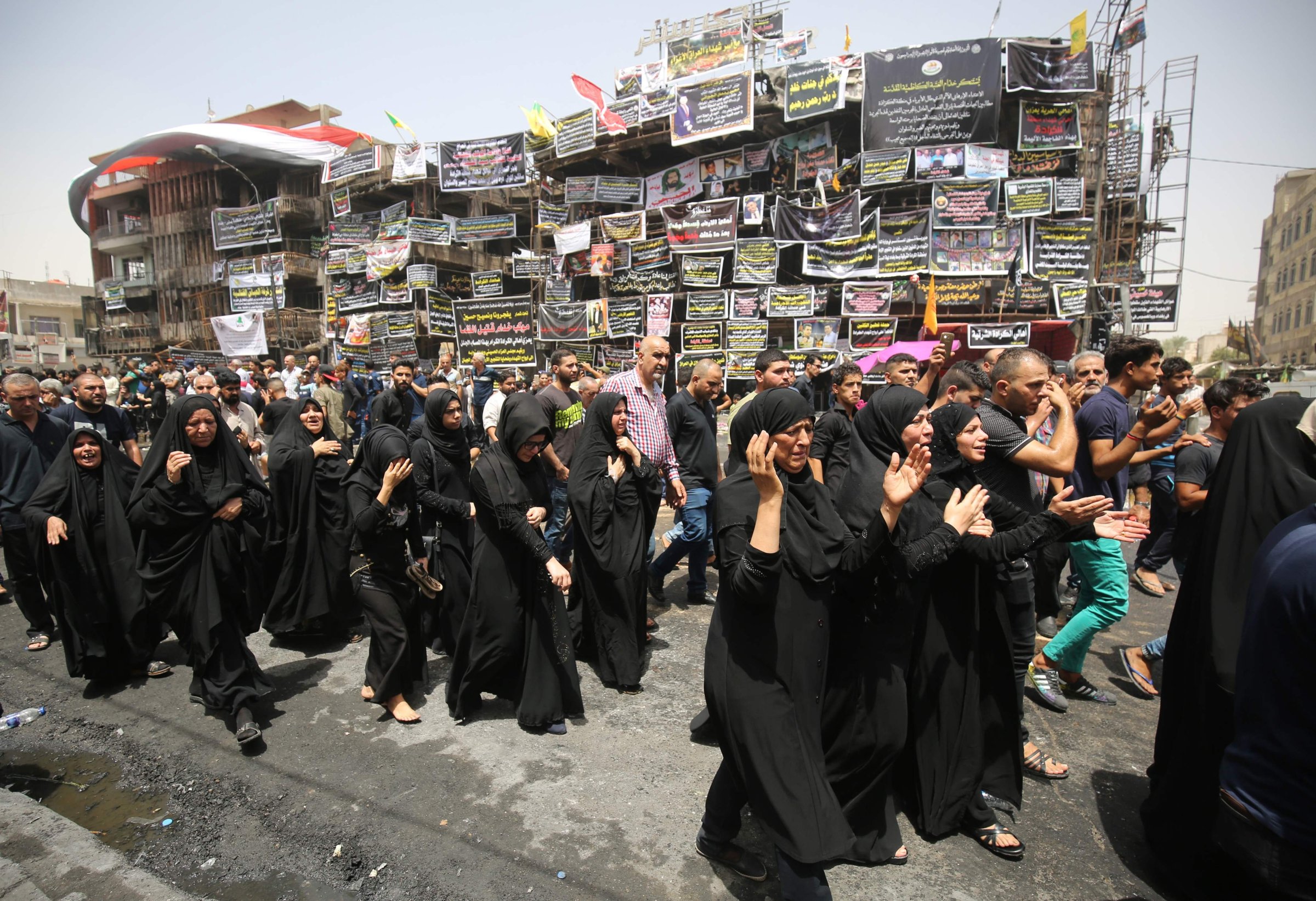
Emma Ashford is a research fellow at the Cato Institute.
This weekend saw a series of ISIS attacks across the Muslim world, punctuating the end of Ramadan with bloodshed, and creating speculation about what these attacks mean for the campaign against ISIS. Perhaps more importantly, the attacks also highlighted a key discrepancy: even a weakened ISIS poses a far larger threat to Middle Eastern states than it does to the United States or to Europe, yet these states have been at best marginal contributors to the U.S.-led campaign against ISIS, while their policies inside Syria have fostered the group’s growth. These attacks should serve as a wake-up call for Middle Eastern leaders who have repeatedly prioritized other concerns.
Since June 27, there have been at least five suspected ISIS attacks—though not all have been formally claimed by the group—including car bombings in Yemen, a triple suicide bombing at Istanbul’s Ataturk International Airport, attempted suicide bombings in three Saudi cities, and a hostage-taking and massacre in Dhaka, Bangladesh. Another suicide bombing in a crowded shopping district became Baghdad’s worst terrorist attack since 2003, killing more than 200 people. While some attacks were aimed at typical ISIS targets, such as Shi’a worshippers or the Saudi security services, they also killed substantial numbers of Sunni Muslims, highlighting once again the group’s willingness to kill indiscriminately.
Unlike U.S.-based attacks in Orlando, Fla., and San Bernardino, Calif., where perpetrators were inspired by ISIS, but had no explicit ties to the group, these attacks appear to have been directed by ISIS itself, or by affiliated groups. It is far easier to conduct such direct attacks in the Middle East. Not only do law enforcement and intelligence services there typically have lower capacity, but governments must contend with the thorny problem of identifying and tracking returning fighters from Syria and Iraq. The scale of the problem is daunting: while fewer than 300 ISIS fighters in Syria and Iraq are estimated to have come from North America, more than 2,500 came from Saudi Arabia, 2,100 from Turkey and 2,000 from Jordan.
With a few exceptions, however, regional states have committed relatively little to the fight against ISIS itself. Certainly, there have been many overt promises of aid, including an eye-catching PR stunt by Jordan’s King Abdullah dressed in his fighter pilot uniform, and a Saudi commitment to create an Islamic alliance to fight terrorism. Indeed, this weekend’s attacks in Saudi Arabia were met with universal condemnation across the region, including King Salman’s promise to “beat with an iron fist those whose target is to mislead the minds and ideas of our youth.”
Yet few of these promises have come to fruition. Regional states have contributed space for training of anti-ISIS groups, and provided some other non-military aid, but the U.S. has consistently carried out more than 70% of overall airstrikes against ISIS, and much of the remaining 30% has been borne by European nations. This is particularly true in recent months. As of December, Saudi Arabia and the United Arab Emirates were only conducting about one airstrike per month, while both Jordan and Bahrain had effectively ended airstrikes.
In part, this ambivalence toward the campaign against ISIS reflects rational fears that an increased profile could increase the likelihood of terrorist attacks. Yet many regional states also continue to view ISIS as a less pressing threat than other concerns. Turkish leaders—who only agreed to allow the anti-ISIS coalition to use Incirlik airbase in July 2015—have focused their attention (and bombing) on their long-running conflict with Kurdish factions, a counterintuitive approach to the conflict given that Kurdish forces are among the most effective anti-ISIS fighters. Saudi Arabia and the Gulf States, on the other hand, have chosen to focus their efforts not on ISIS, but on their unsuccessful war in Yemen and regional contestation with Iran.
The insistence of regional states on support for rebels inside Syria also impedes the campaign. Hoping to overthrow the Assad regime, many of these states provided weapons and funding to rebel groups in Syria throughout the early years of the civil war, at least some of which inadvertently ended up in the hands of ISIS and other extremist groups. The Turkish government’s focus on the Assad regime led it to permit extremist fighters to transit its territory, and to turn a blind eye to extremist activities for years. Even today, regional states’ support for Syrian rebel groups helps to sustain the violence inside Syria, impeding political settlement of the civil war and distracting from the campaign against ISIS.
In short, despite many promises, regional states have largely avoided making hard choices on Syria. Though they remain far more vulnerable to ISIS attacks than the U.S. or even Europe, states like Saudi Arabia and Turkey have been content to let Western states bear the burden of the anti-ISIS campaign. Indeed, this is not an easy choice; it requires these states to shift away from other perceived threats towards the larger threat posed by ISIS. Yet this weekend’s attacks show that leaders cannot avoid this decision any longer; it is time for them to reexamine their approach towards ISIS, and to seek more active participation in the U.S.-led campaign against the group.
More Must-Reads from TIME
- Where Trump 2.0 Will Differ From 1.0
- How Elon Musk Became a Kingmaker
- The Power—And Limits—of Peer Support
- The 100 Must-Read Books of 2024
- Column: If Optimism Feels Ridiculous Now, Try Hope
- The Future of Climate Action Is Trade Policy
- FX’s Say Nothing Is the Must-Watch Political Thriller of 2024
- Merle Bombardieri Is Helping People Make the Baby Decision
Contact us at letters@time.com